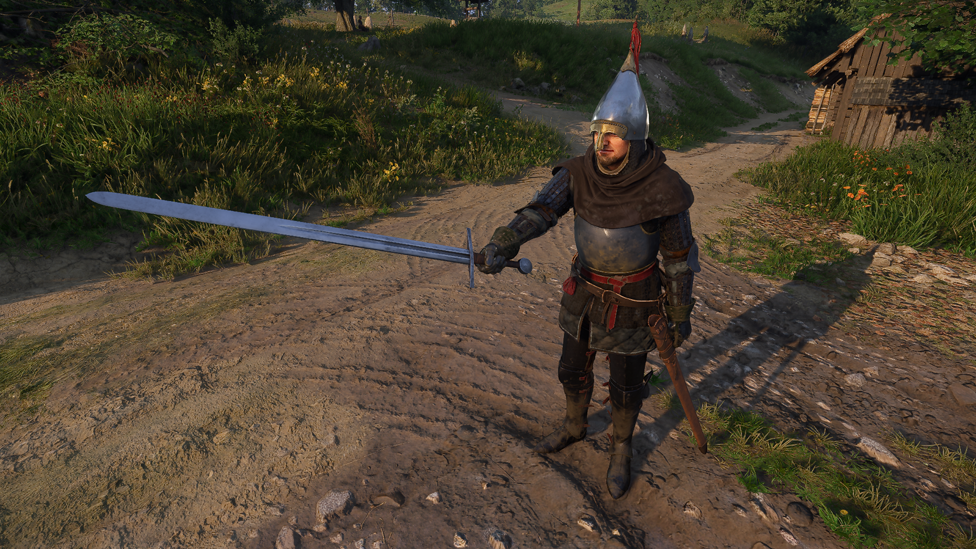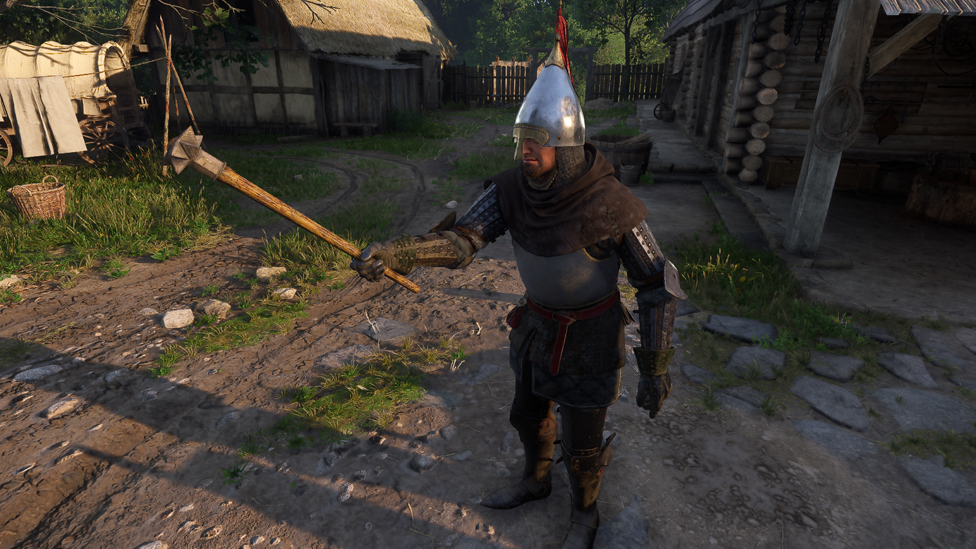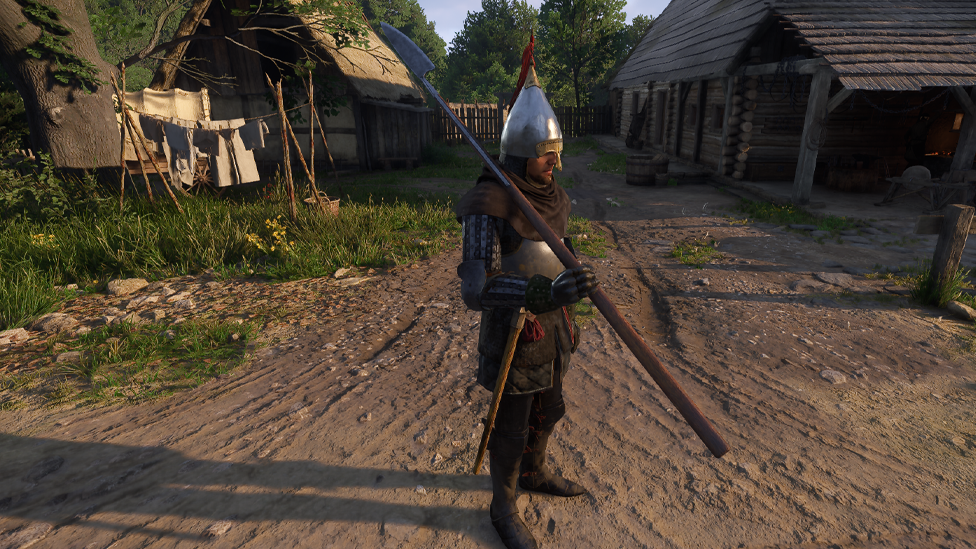All Melee Weapons in Kingdom Come: Deliverance 2
Combat plays an important role in Kingdom Come: Deliverance 2, and although diplomacy and stealth can help avoid some conflicts, battles cannot be avoided. Whether against savage bandits, armoured knights, or feral beasts, the choice of weapon is absolutely important and can help tip the scales of the battle.
KCD2 builds on the semi-realistic melee combat system of the first, offering players a variety of different weapons with varying strengths and weaknesses. In order to really get the hang of them, more is required than swinging wildly— there needs to be understanding of damage types, weapon range, and armor on enemies to really make it in Bohemia's unforgiving world.
This guide breaks down all of Kingdom Come: Deliverance 2's melee weapons, explaining their damage types, uses, and the best ways to utilize them in battle.
Melee Weapon Categories and Damage Types

Make Your Own game Server
Melee weapons in KCD2 are classified into three general categories, each suitable for different combat scenarios:
- Swords – Balanced, fast, and most suitable for skilled fighters.
- Heavy Weapons – Powerful but slow, employing brute force.
- Polearms – The longest of all, with good adaptability.
Each weapon deals one or more of the following kinds of damage:
- Slash Damage – Most suitable for unarmored or lightly-armored opponents.
- Blunt Damage – Most suitable for fighting heavily-armored opponents.
- Stab Damage – Accurate and lethal, particularly when hitting vulnerable areas .
Let's now examine each category of weapons and their subtypes in greater detail.
Swords
Swords are the most balanced melee weapons in Kingdom Come: Deliverance 2. They have a balance between power, speed, and reach, and as such, they are the preferred choice for most players. Though they mainly cause Slash and Stab damage, there are swords that can cause slight Blunt damage as well. As opposed to heavy weapons, swords excel in counter-attacks. Swords are the sole KCD2 weapons that can Master Strike, a lethal counter skill that greatly simplifies fighting. It will help your gaming experience if you can unlock it early on.
There are several sword categories in KCD2:
- Longswords – High damage and reach but slower.
- Shortswords – Long Swords but with increased speed and less reach and strength.
- Sabers – Quickest sword class, excellent at applying bleeding.
Ideal Uses:
- Best versus lightly-armored targets such as bandits.
- Stabbing works well for bare areas, the face.
- Excellent with dueling due to speed and counter-attack.
Heavy Weapons

Heavy weapons in KCD2 focus on raw brute strength, trading speed for pure destructive power. Heavy weapons require high strength and moderate agility but can shatter shields that swords struggle to break. Heavy weapons primarily deal Blunt and Slash damage, depending on the type:
- Axes – Mix of Slash and Blunt damage, ideal for crushing shields.
- Maces & Clubs – Pure Blunt damage, ideal for breaking armor.
- Waraxes & Warhammers – Blunt and Stab hybrid weapons. One drawback of heavy weapons is that they use up durability more while being used to block. To minimize durability loss, using them with a shield is recommended.
Best Uses:
- They are best against armor-wearing enemies like knights and guards.
- Maces and warhammers are optimal for plate armor.
- Axes are a good middle ground, strong on medium armor and shields.
Polearms
Polearms have unmatched reach in close combat, and players can attack at a distance. While slower than most weapons, polearms are highly versatile since they can apply all three forms of damage—Slash, Stab, and Blunt. Swords and heavy weapons are unlike polearms, as they require more Strength and Agility to use optimally. Players will need to train their skills beforehand before using them to their full potential. The most common types of polearms are:
- Halberds – A balanced mix of Slash and Blunt damage.
- Spears – For thrusting, dealing high Stab damage.
- Poleaxes – A hybrid of axes and polearms.
- Staves – Solely Blunt weapons, ideal for non-lethal combat.
Best Uses:
- Excellent for keeping enemies at bay with ranged attacks.
- Able to deal with both armored and unarmored targets.
- Successful in group battles, enabling safer combat.
Choosing the Right Weapon

Choosing a melee weapon in Kingdom Come: Deliverance 2 depends on your playstyle and the type of enemy you’re facing. For example, if you’re;
- Fighting Unarmored Opponents: Use swords or polearms with high Slash damage.
- Battling Heavily-Armored Foes: Heavy weapons like maces and warhammers work best.
- Preferring Range and Versatility: Polearms are excellent for maintaining distance.
In addition, mastery of different weapons gives players an advantage in unexpected combat. While swords offer a compromise between strength and speed, polearms and heavy weapons can grant players an advantage over specific enemies.
Reliable Server Hosting With Scalacube
If you’re in need of a fast and reliable game server for Kingdom Come: Deliverance 2 or other popular titles ScalaCube is your go-to option. ScalaCube offers high performance Minecraft, ARK, Rust and other game server hosting, instant setup, and DDoS protection. You will also enjoy a smooth multiplayer experience at an affordable price.
FAQs
Are polearms better than swords?
Polearms have better reach and versatility, but they are slower and more difficult to use in close quarters. Swords are more balanced and can deliver quicker strikes and counterattacks.
Is dual-wielding melee weapons a possibility in KCD2?
No, Kingdom Come: Deliverance 2 retains the combat system of its prequel, and dual-wielding is not a possibility. Players can, however, use a one-handed weapon in combination with a shield.
How do Master Strikes work in KCD2?
Мaster Strikes are a special class of counter attack that are possible only with swords. It allows players to parry and counter in one motion. Masters strikes come in handy during duels.
Conclusion
To win in close combat in Kingdom Come: Deliverance 2, players need skill, strategy and the right choice of weapon. Every weapon comes with its advantages. Swords come with precision, heavy weapons come with brutality, polearms cover longer range. Players should equip themselves with the knowledge of every weapon to get a better gaming experience.